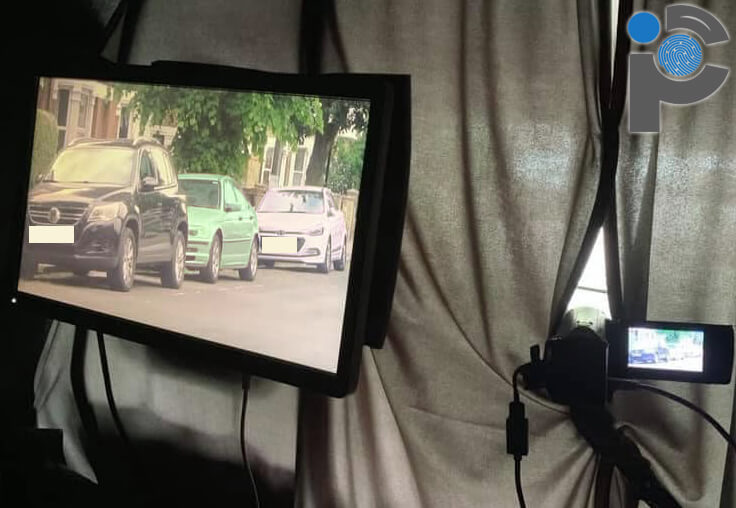How to Become a Private Investigator in the UK
January 25, 2021 - Reading time: 13 minutes
Updated on: October 1, 2025

As a leading UK private detective agency, we see a lot of confusion about what modern private investigators actually do and how to become a private investigator in the UK. TV is fun, but a real UK private investigator job is different. Many people will never need a PI, so the role isn’t as familiar as other professions. It’s a niche field and the work spans a wide range of skills.
At PrivateInvestigators-UK, we cover services for private clients and companies across England, Wales, Scotland and Northern Ireland. The qualities and experience we look for depend on the specific service. Each job goes to an agent with the right skill set. If you’re serious about a UK PI career, start by understanding the day-to-day work and then build training that matches it.
What type of people become private investigators?
Forget the trench coat cliché. A competent UK detective agency should reflect the population. We work with agents from different backgrounds, ages, genders and nationalities. That range helps us blend in, act lawfully and get results.
Types of work completed by private investigators
The industry is broad. Some agencies mainly help private clients, for example checking suspected infidelity or verifying claims. Others focus on litigation support for solicitors. Many firms serve corporate clients with due diligence, internal investigations and fraud risk work.
Inside those niches are dozens of specialist roles: process serving, document review, TSCM/bug sweeps, covert surveillance, tracing people, insurance investigations, cohabitation checks, witness interviews, desktop research/OSINT, and more. The experience you need depends on the task. If you want a UK PI career, pick a speciality, then build qualifications and experience that make you a strong hire.

Surveillance is still the bread and butter for many detective agencies. It means watching a person or place, following discreetly and collecting photos or video as evidence. Surveillance supports infidelity cases, injury and insurance claims, employee misconduct and corporate due diligence. If you want to work surveillance in the UK, expect early starts, late finishes and a lot of driving.
Qualities that we look for in private investigators
Many of our agents previously served in law enforcement or the military and we value that training. Plenty of excellent private investigators come from civilian careers and have built “career PI” skill sets over time. Both routes can work.
You’ll need more than field craft. A surveillance agent might be a strong photographer, but they also need to edit and organise media, compress files and write a clear report. Basic to moderate video editing helps. Strong written English matters. Reports must be grammatically correct, well punctuated and easy to read while still detailed. Sloppy spelling or poor formatting sets the wrong tone. Proofread your work, use paragraphs and make it readable on a phone.
Good communication is vital when explaining results to a client or briefing a colleague. We look for intelligent, motivated people. Extra skills are a bonus: advanced driving, languages, OSINT and data analysis, fraud investigation, process serving, consumer law knowledge or technical skills for TSCM bug sweep work.
Are you interested in running a private investigation company in the UK?

The website you are on right now is currently for sale. You can buy it outright and own a fully established UK private investigation site that is already generating enquiries, or we may be open to a joint venture if you can bring capital. This is a rare chance to step straight into the industry with a serious platform, rather than starting from scratch.
View Business Sale DetailsLegal and ethical basics (UK)
Licensing note: The UK does not currently run a universal, mandatory licence for private investigators. Clients often search “private investigator licence UK”, so it helps to be clear. Agencies still follow the law: data protection and GDPR, the Protection from Harassment Act, the Investigatory Powers framework where relevant, trespass, communications and fraud legislation. We work within the law and we say no to unlawful requests.
Do I need a degree to work as a private investigator in the UK?
No. There’s no legal requirement for a degree to work as a private investigator in the UK. Some firms like relevant degrees, but experience often outweighs classroom learning. Besides sensible training, most useful skills are learned on real jobs and improved over years.
Get qualified as a UK private investigator
There’s a lot of choice. ISS Training and Titan Investigations are often recommended for practical courses. You might also look at UKPIN for a diploma covering investigative skills. You’ll find many online “investigation” courses. Some are useful, some less so. Before spending money, ask working PIs which training actually helped them. Cheap online certificates tend not to impress established agencies, but showing continuous learning does help your CV.
Plenty of people who search for how to become a private investigator in the UK also ask about things like PI training courses, private investigator salary UK, or whether there are entry-level surveillance jobs. These are all natural steps on the path into the industry, and the answers depend on your experience, training, and where you’re based.
Past investigative experience
Experience is everything. Many detectives come from policing or military, which gives a solid base in surveillance and evidence handling. If you’re new, stack practical experience however you can: assisting on operations, shadowing, editing reports, doing desktop research or taking on limited tasks inside a larger case. Many trade associations require a minimum experience level for membership.
Without experience, a strong list of recognised courses can help you get your foot in the door and show that you take the work seriously.
Tools of the trade
- Reliable vehicle and clean presentation – blend in, don’t stand out.
- Cameras with fast low-light autofocus, discreet audio recorders where lawful, and power banks.
- Mapping, route planning and note-taking that timestamps events for reports.
- Basic video and image editing software to package evidence clearly.
- Desktop research/OSINT tooling for open-source checks, companies and assets.
Getting employed as a private investigator in the UK
PrivateInvestigators-UK is a large UK agency. We cover England, Wales, Scotland, NI, ROI, Europe and beyond. We’re always looking for new talent across the UK, from surveillance to OSINT, process serving, due diligence, TSCM and more. If you’re interested in working with us, read our careers page and get in touch with your CV, location and availability.
Frequently asked questions (UK PI career)
How long does it take to become a private investigator in the UK?
Do private investigators need a licence in the UK?
What does a private investigator earn in the UK?
What’s the best entry path with no experience?
Related blog posts
You are reading the PrivateInvestigators-UK blog — home to the UK's leading detective agency. Learn more about us by visiting our homepage PrivateInvestigators-UK.com.